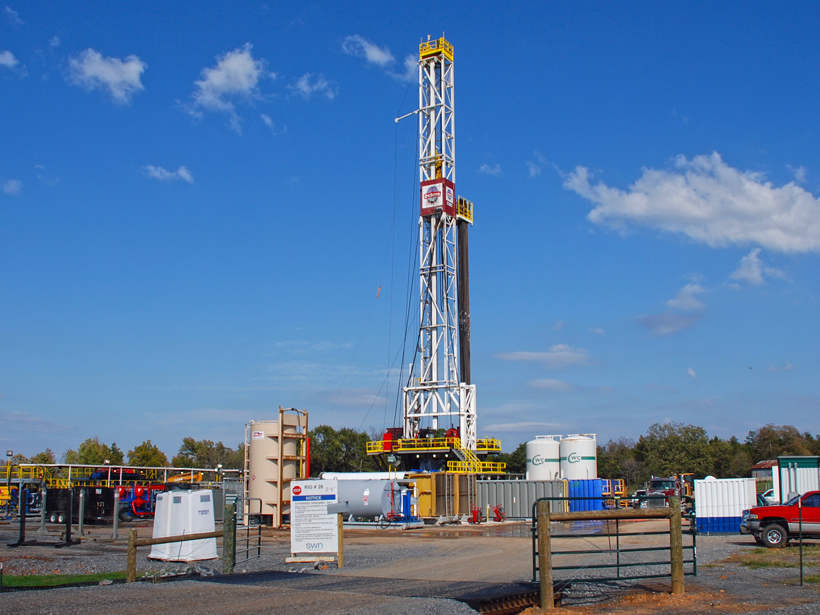A final rule related to hydraulic fracturing, or “fracking,” on public and tribal lands in the United States will be released “in the coming days,” according to Department of the Interior (DOI) secretary Sally Jewell.
DOI also is planning measures to reduce methane emissions that result from venting and flaring during oil and gas operations, modernize coal mining operations to protect water sources, and promote alternative energy, among other actions, Jewell said at a 17 March speech about DOI’s vision for “a balanced and prosperous energy future.”
“Helping our nation cut carbon pollution should inform our decisions about where we develop, how we develop, and what we develop.”
DOI’s “reform agenda” for the next 2 years has three goals: safe and responsible energy development, good government, and encouraging innovation, Jewell said at the speech, which she gave at the Center for Strategic and International Studies in Washington, D. C. “Our task by the end of this administration is to put in place common-sense reforms that promote good government and help define the rules of the road for America’s energy future on our public lands,” she said. “We also need to do more to address the causes of climate change. Helping our nation cut carbon pollution should inform our decisions about where we develop, how we develop, and what we develop.”
Fracking and Offshore Oil Drilling
The soon-to-be released fracking rule will include measures to protect groundwater and will require operators to construct structurally sound wells, disclose what chemicals they use, and safely recover and handle fluids used in the process, Jewell said.

Fracking is a process that involves injecting water, sand, and chemicals into bedrock formations to increase the oil or gas flow to a well. About 25% of such unconventional oil and gas extraction efforts in the United States are located on public and tribal lands, according to DOI.
For offshore oil drilling, Jewell said that DOI will propose a rule “in the coming weeks” to require best practices to protect against any loss of well control. “Safety remains our top priority,” she said. “We can’t forget the lessons learned after the Deepwater Horizon tragedy” in the Gulf of Mexico in April 2010. That event included the explosion of the Deepwater Horizon oil rig, which killed 11 people and led to the leak of an estimated 3.19 million barrels of oil.
“I recognize that there will be pushback from various corners” regarding reforms related to oil and gas, Jewell said. “I also appreciate the importance of the oil and gas sector, and I’m committed to its ongoing success. I strongly believe that these reforms are not only achievable with modern technology and science but absolutely critical to upholding public trust, enabling industry to responsibly develop our natural resources.”
Modernizing the Federal Coal Program
“It’s time for an honest and open conversation about modernizing the federal coal program.”
Jewell said that coal will continue to be an important part of the nation’s energy mix but that the federal coal program needs reform. “We need to ask ourselves: Are taxpayers and local communities getting a fair return from these resources? How can we make the program more transparent and more competitive? How do we manage the program in a way that is consistent with our climate change objectives?” she said. “These are hard questions. But it’s time for an honest and open conversation about modernizing the federal coal program.”
She added that coal companies currently “can make a winning bid for about a dollar a ton to mine taxpayer-owned coal” on public lands and that American taxpayers need to get “a fair return” for the use of natural resources on public lands.
In her address, Jewell called for more resources for DOI to carry out its mission and to be a better partner with industry. She said that repeated budget cuts “have tested” the ability of DOI’s Bureau of Reclamation to keep up with industry demand for new oil and gas permits and to enforce safety and environmental standards.
Developing Renewable Energy

Jewell also noted DOI’s efforts to assist with the development of renewable energy by speeding project approval times and by identifying wind energy areas along the Atlantic coast that don’t have a detrimental impact on the environment, national security, or other areas.
“Just as the United States is a leader in unconventional oil extraction and is now the world’s top producer of natural gas,” Jewell said, “there’s no reason why we shouldn’t also be the top producer of solar power and wind power.”
—Randy Showstack, Staff Writer
Citation: Showstack, R. (2015), Jewell presents Interior Department’s energy “reform agenda,” Eos, 96, doi:10.1029/2015EO026613. Published on 19 March 2015.
Text © 2015. The authors. CC BY-NC 3.0
Except where otherwise noted, images are subject to copyright. Any reuse without express permission from the copyright owner is prohibited.

